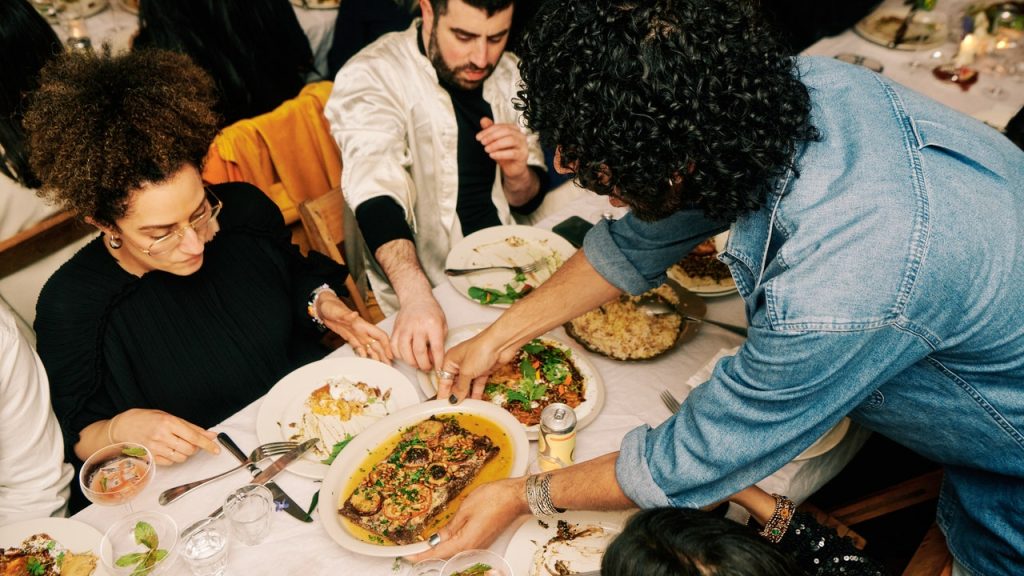Through the act of breaking fast together during iftar dinners, Muslims not only come together to share food and warm company, but also to support and fundraise for important causes within their community. Recently, at an iftar event in New York, attendees raised money for a Muslim women’s shelter to support a pregnant Gazan woman who had fled from the continuous bombings in Gaza by the Israeli military. The event was co-hosted by Pillars Fund, a nonprofit organization dedicated to amplifying the narratives, talents, and leadership of Muslims. Kashif Shaikh, the president of the organization, highlighted the importance of hosting iftars as a means of building solidarity and community, especially during challenging times for Muslims in Palestine and Sudan.
The iftar dinner served as a gathering of both Muslims and non-Muslims, who came together to support the cause and demonstrate their solidarity with those in need. The event not only provided an opportunity for individuals to come together and share a meal, but also served as a platform for fundraising and raising awareness about important issues affecting the Muslim community. Through their collective efforts, attendees were able to make a tangible impact by contributing to the support of a pregnant woman in need and the Muslim women’s shelter in New York.
The generosity and love displayed by Muslims during iftar dinners go beyond simply sharing a meal together; it extends to supporting important causes within the community and providing assistance to those in need. By coming together to raise money for a pregnant refugee woman and a Muslim women’s shelter, attendees demonstrated their commitment to supporting vulnerable individuals and organizations within the Muslim community. Through their collective efforts, they were able to make a meaningful difference and contribute to the well-being of those in need.
The act of hosting iftar dinners with Muslims and non-Muslims serves as an important means of building solidarity and community, particularly during challenging times for Muslims in places like Palestine and Sudan. By coming together to break fast, share a meal, and support important causes, attendees at iftar dinners are able to forge connections, build relationships, and work towards creating a more compassionate and supportive community. Through their collective efforts, they are able to demonstrate their commitment to supporting those in need and making a positive impact within the Muslim community.
The importance of hosting iftar dinners goes beyond simply sharing a meal; it serves as a means of building solidarity and community among Muslims and non-Muslims alike. By coming together to support important causes, raise money for those in need, and demonstrate their commitment to creating a more inclusive and compassionate community, attendees at iftar dinners are able to make a tangible impact and show their support for vulnerable individuals within the Muslim community. Through their collective efforts, they are able to create a more supportive and caring environment for all members of the community.
Overall, the act of hosting iftar dinners serves as a powerful means of building solidarity, community, and support within the Muslim community. By coming together to break fast, share a meal, and support important causes, Muslims and non-Muslims alike are able to make a meaningful impact and show their support for those in need. Through their generosity and love, attendees at iftar dinners are able to demonstrate their commitment to creating a more inclusive, compassionate, and supportive community for all members. By coming together in times of need and working towards common goals, they are able to create a stronger and more united community that is better equipped to support and uplift one another.















